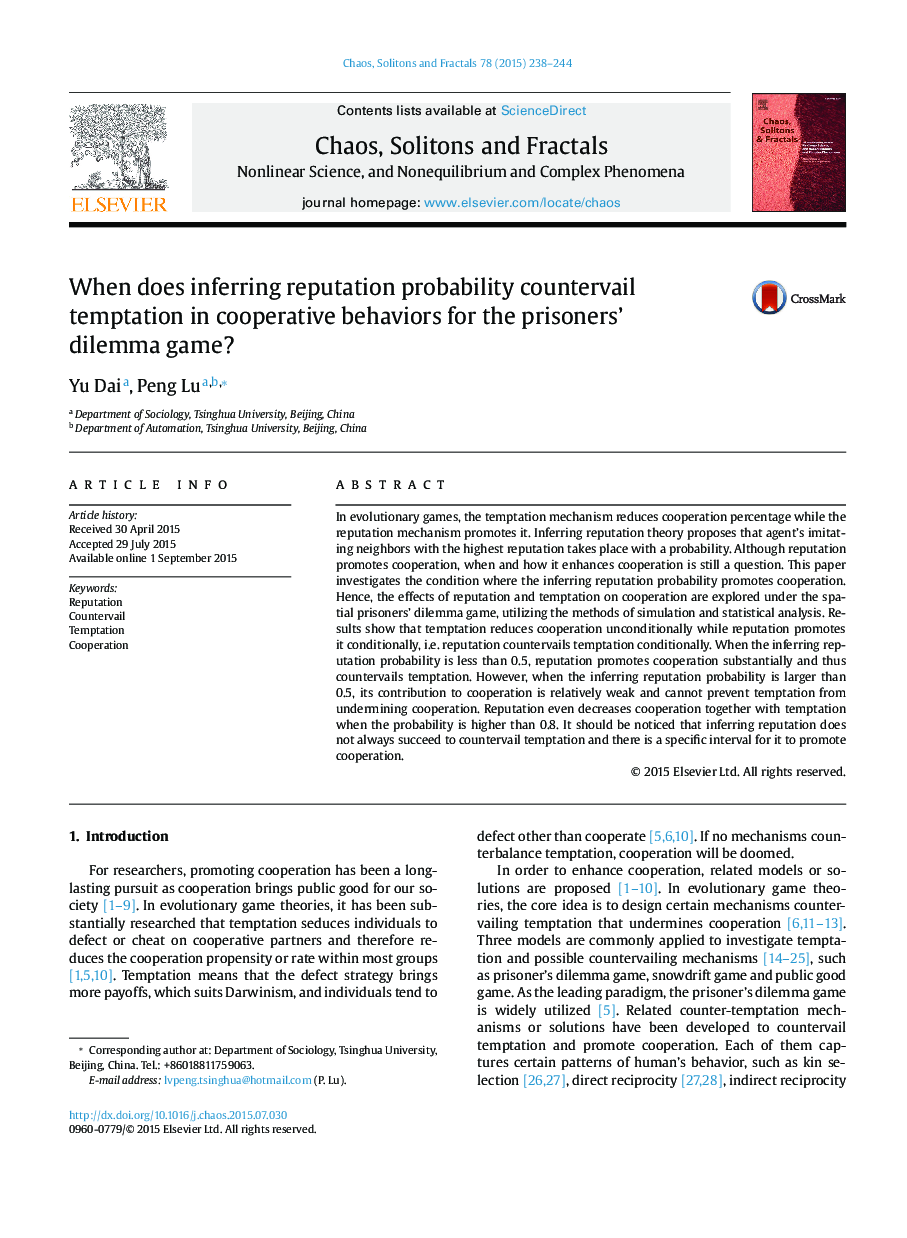| کد مقاله | کد نشریه | سال انتشار | مقاله انگلیسی | نسخه تمام متن |
|---|---|---|---|---|
| 1888541 | 1533646 | 2015 | 7 صفحه PDF | دانلود رایگان |
In evolutionary games, the temptation mechanism reduces cooperation percentage while the reputation mechanism promotes it. Inferring reputation theory proposes that agent's imitating neighbors with the highest reputation takes place with a probability. Although reputation promotes cooperation, when and how it enhances cooperation is still a question. This paper investigates the condition where the inferring reputation probability promotes cooperation. Hence, the effects of reputation and temptation on cooperation are explored under the spatial prisoners’ dilemma game, utilizing the methods of simulation and statistical analysis. Results show that temptation reduces cooperation unconditionally while reputation promotes it conditionally, i.e. reputation countervails temptation conditionally. When the inferring reputation probability is less than 0.5, reputation promotes cooperation substantially and thus countervails temptation. However, when the inferring reputation probability is larger than 0.5, its contribution to cooperation is relatively weak and cannot prevent temptation from undermining cooperation. Reputation even decreases cooperation together with temptation when the probability is higher than 0.8. It should be noticed that inferring reputation does not always succeed to countervail temptation and there is a specific interval for it to promote cooperation.
Journal: Chaos, Solitons & Fractals - Volume 78, September 2015, Pages 238–244
